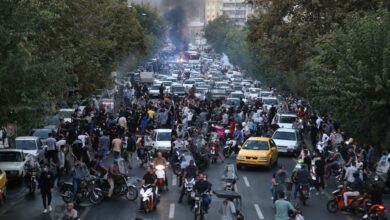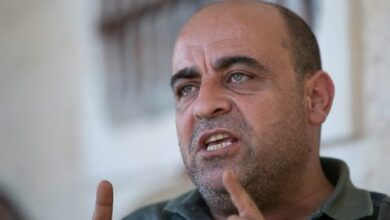Three months after news surfaced that military police conducted virginity tests on female prostesters, Samira Ibrahim, one of the victims, has lodged an official complaint with the military prosecution.
Following her complaint, Ibrahim was brought in on Tuesday by the military prosecution to give a detailed account of her experience. She shared some of her story with Al-Masry Al-Youm.
Seventeen girls were among the 173 protesters arrested on 9 March as the military police forcibly cleared protesters from Tahrir Square. Many detainees reported being tortured, but some women, who were released four days later, announced in the media that they were forced to undergo virginity tests during their incarceration.
The Supreme Council of the Armed Forces (SCAF), Egypt’s de-facto rulers since the president resigned in February, denied the allegations, but a CNN report in May quoted a senior general, speaking on condition of anonymity, as admitting to the practice.
The general said that the tests aimed at protecting the military from rape accusations by the girls later by proving that they were not virgins when they were first brought in. “None of them were virgins,” he added, according to CNN’s report.
Infuriated by the claim, Ibrahim and many of the other girls who shared her ordeal say that they are willing to take another virginity test to prove the general wrong.
Egypt's military came under heavy criticism from local and international human rights groups for the tests.
During her session with the military prosecutor, Ibrahim blamed the violations she encountered on the head of military police, SCAF member Hasssan el-Roweiny.
Ibrahim’s lawyers are asking the prosecution to summon the officers that were on duty during her incarceration so that she can identify her abusers.
After being arrested in Tahrir Square, Ibrahim was taken to the Egyptian museum with other captured protesters.
“As they arrested us, they were saying that we are accused of prostitution, and when I tried to object I was electrocuted,” Ibrahim told Al-Masry Al-Youm.
The women say that they were verbally abused by the military as they were held in the Egyptian museum for six hours. Military police insulted them and accused them of sexual activity inside Tahrir Square, the women say, though they say that the men arrested with them were tortured more severely.
The men were also electrocuted in “sensitive areas”, according to Ibrahim.
Mohamed Adel, one of those arrested on 9 March, says that the girls were sexually harassed by officers in the military prosecution.
After hours of abuse, the virginity tests started.
Ibrahim’s story goes like this. The girls were asked to separate into two rows: one for the virgins and one for the non-virgins. The girls who said they were virgins were then taken to a room one by one. All the windows and the doors of the room were open and there were officers watching inside and outside the room as a male, whom they suspect was a non-medical officer, conducted the virginity tests.
“When I asked for a female to conduct the test and for the other males in the room to leave, I was electrocuted,” says Ibrahim.
Many of the girls say that they still haven’t completely recovered from the emotional damage of the experience. They were then transferred to a center for military prosecution and most were released four days later.
“When I came out of prison, I was completely destroyed. I had to go see a psychiatrist,” says Ibrahim.
Since her release, Ibrahim has kept the virginity test a secret from her friends and family, fearing that they might not believe her or that they would stop her engaging in political activity. However, she says that she was not afraid to issue the complaint, and is not afraid that her family will notice if she talks to the media.
“The worst that can happen already has,” she says.
Ibrahim says that she has been receiving threatening phone calls since she made the complaint, telling her that if she goes through with it she will serve her suspended one-year sentence, which she received before her release in March.
Taher Aboul Nasr, one of the lawyers working with Ibrahim, says that it is difficult to anticipate the outcome of the complaint since lawyers don’t have a lot of experience dealing with the military prosecution.
If the military prosecution’s investigations prove that Ibrahim’s allegations are true, a lawsuit will be filed against those responsible.




